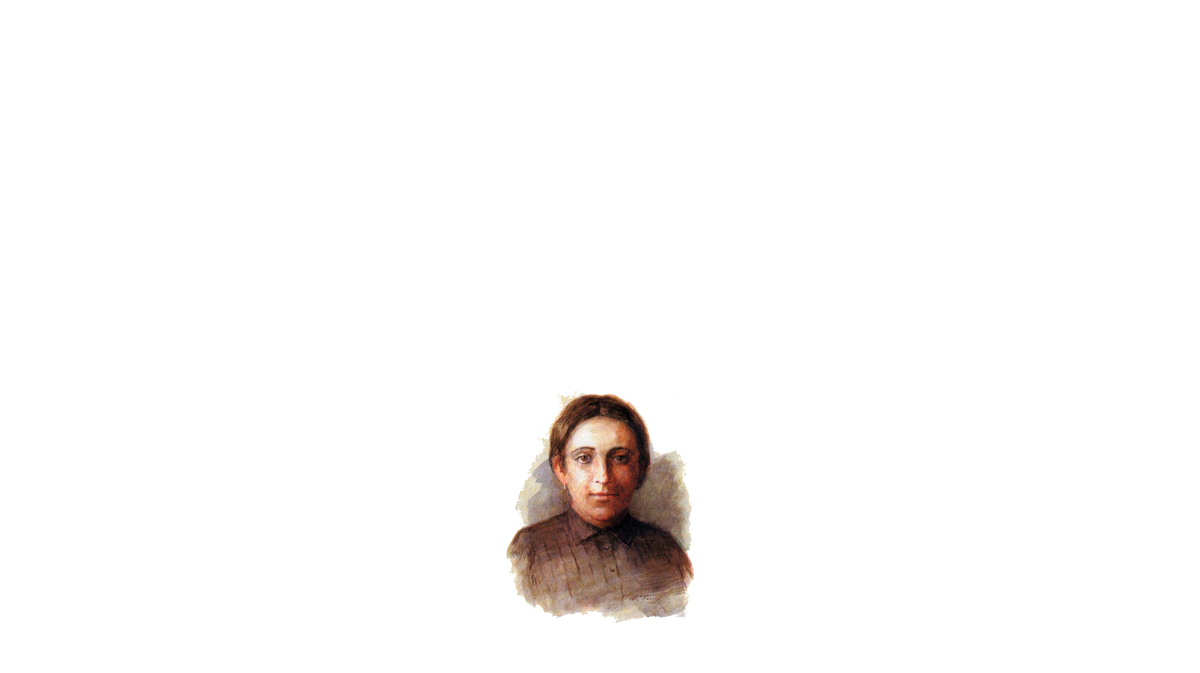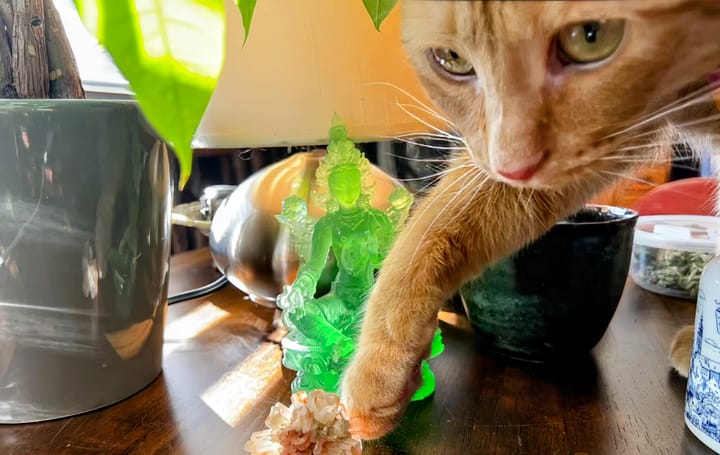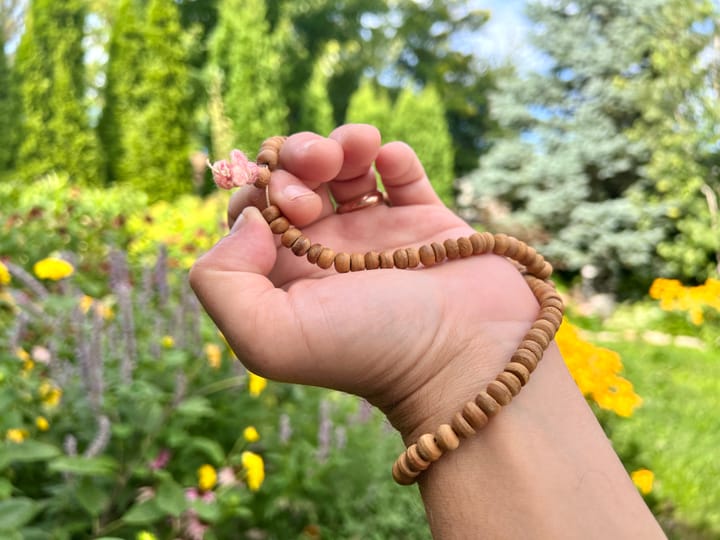Guest post: on letting God be small enough to keep us company
The day after the election I called up an old friend, a Jesuit priest. I’m no longer Catholic or even Christian myself, but I found myself asking if he had any pastoral guidance to offer. I found his response deeply consoling, and I asked him to let me share it with you.

The question at this moment is not: “Can our god be a great and powerful king?” But rather: “Can we let god be small enough?” Small enough to accompany us in all this?
Today, 6 November 2024, I celebrated Eucharist twice: once at a cloistered women’s monastery early in the morning and then at noon on the campus of the university where I teach.
For the first, I wore white vestments, on account of a saint on the women’s order’s calendar Blessed Josefa Naval Girbés: a saint who cared for people and served in small ways in the midst of everyday life. For the second, I wore violet, since on my own order’s calendar, it’s our commemoration of All Souls, of the order’s dead, following upon our celebration of all our saints and martyrs yesterday. Violet is also a sign of penance and sorrow in my tradition.
A friend encouraged me to write some notes from my first sermon today, as he thought they might be useful for people in the world today.
Lections
- St. Paul to the Corinthians - 1, 26-31
God chose what is foolish by human reckoning. - Responsorial Psalm - Ps. 130
R/. You, O Lord, are my strength. - Gospel according to Matthew - 11:25-30
You have hidden these things from the learned and have revealed them to the childlike.
One of the nuns, by accident, read Galatians 6:1-10, as it was on the previous page. It had the verses (9-10a):
Let us not grow tired of doing good, for in due time we shall reap our harvest, if we do not give up. So then, while we have the opportunity, let us do good to all.
So, I incorporated those too.
Here’s what I said:
Yesterday, I told friends that I wasn’t following the election. I’d voted by mail some weeks ago and the rest of everything wasn’t under my authority. So I went to Mass with a friend, took him to vote, and then we went out for dinner.
When I got home, I noticed messages from friends about how the election was going. So I cheated, I peeked. I went out on the internet to check the results.
I noticed something else too—some Catholics were posting memes claiming Christ as king, stating that we should acknowledge him as ruler.
I have no objection to that, since it’s part of my order’s spirituality. But I wondered.
Rilke, in his Book of Hours, wrote about god:
And when our hearts would open, our [fervent] hands hide You.
And he then describes the scepter, gold, diadem, paint that we use to make images of god as king and thereby hide god from ourselves. A god who only ever wants to enter into our hearts. A god of humility and smallness.
Drawing on today’s scripture, Paul tells us that god has chosen folly over the world’s wisdom. Weakness over the world’s strength. And indeed: Today we see what the great and the powerful of the world are doing! Y’all know me well enough to know that I won’t comment on politics while preaching, but I will say that our system is fundamentally broken. On both sides. And this is what the world’s strength and wisdom has produced, this is what the great and wealthy and powerful have wrought in our world.
The question at this moment is not: “Can our god be a great and powerful king?” But rather: “Can we let god be small enough?” Small enough to accompany us in all this? Small enough to enter in our world through our system’s cracks? Small enough to let the Kingdom belong to the childlike?
And: “Can we keep doing good in the midst of such brokenness?” Can we do good to everyone? Even those who do great wrong and even evil? Josefa, whose feast we mark today, did small acts of kindness in the midst of an ordinary life.
In doing good, maybe our attention is on the small, on the ordinary, pleading that our god meet us there, that we might cooperate with the Kingdom. And that we might let god be small enough to enter our heart and our world through its cracks, even its brokenness. And come with god’s mercy, god’s smallness, god’s kindness, god’s love. The mercy and love by which the Kingdom is built. And by which we enter into it and god enters into us and our world. God waits for this, until our hands cease to hide.




